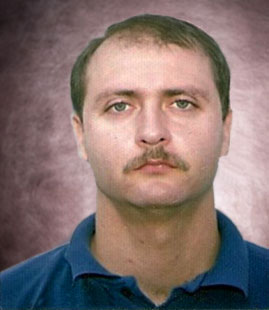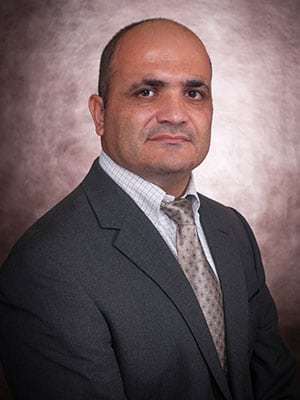Mechanical Engineering (BSc, 4 Years)
| Duration | 4 years |
| Qualification Awarded | Bachelor of Science in Mechanical Engineering |
| Level of Qualification | Bachelor Degree (1st Cycle) |
| Language of Instruction | English |
| Mode of Study | Full-time or Part-time |
| Minimum ECTS Credits | 240 |
Request Information
Profile of the Programme
The Mechanical Engineering (MENG) programme covers the subject of Mechanical Engineering, a scientific area represented in the largest universities abroad with respective programs/departments, been active in education and research for over 100 years.
The purpose of the current MENG programme is to offer high-quality education and research, which enable students to acquire knowledge and to cultivate such skills that will help them succeed in their careers, enrich their experience, successfully face any difficulties, but also to take advantage of the opportunities they will meet.
Through the educational process, an effort is made so all the students acquire the knowledge, skills, and abilities, to act as responsible Engineers for scientific decision making and the preparation/implementation of studies for the research, the design, the theoretical simulation, the growth, the production, the treatment, the control of manufacturing processes, the quality control/authentication of raw materials and final product used for conventional and modern technological applications. At the same time, MENG program aims to develop the students’ analytical and synthetic skills, as well as their ethos/professional culture so that they can cope successfully in the professional arena after their graduation.
The MENG programme responds to the needs and requirements of modern society, ensures the quality of the studies provided to the students by following specific procedures, which are harmonized with the Quality Policy of the University of Nicosia.
The specific objectives of the programme are to:
- Equip students with fundamental knowledge, analytical skills, engineering tools, and laboratory experience to cope successfully in the technologically challenging field of mechanical engineering;
- Facilitate learning and training in mechanical engineering, which are directly linked to industry and current state-of-the-art technology;
- Provide analytical and computational skills necessary for the solution of theoretical and practical problems related to mechanical engineering;
- Provide a practical and experimental hands-on experience that allows students to link directly to fundamental knowledge and theory;
- Prepare students to work alone or in groups to provide engineering solutions;
- Prepare students to design/implement systems and processes towards the solution of problems in mechanical engineering;
- Develop communications skills, including the ability to write technical reports and present their work το audience;
- Provide students with the opportunity to develop specialized knowledge and technical competence in their field of expertise to become successful professional engineers;
- Prepare students for post-graduate studies and research in the field of mechanical engineering.
The program is fully accredited by the Ministry of Education. It has also been approved by the Cyprus Scientific and Technical Chamber (ETEK) and our graduates are in a position to register as licensed Engineers with ETEK. The program conforms to the undisputable academic guidelines set by international accreditation bodies such as the Accreditation Board for Engineering and Technology (ABET) in the United States. It includes a considerable number of major and elective courses of theoretical and applied nature which add to program diversity and contribute to a foundation of a broad range of skills for career positions in academia and industry.
Also, like all programs of study the University of Nicosia, it is certified by the Cyprus Agency of Quality Assurance and Accreditation in Higher Education (CYQAA).
The University of Nicosia is recognized by the Hellenic National Academic Recognition and Information Center (D.O.A.T.A.P.) as equivalent to Greek H.E.I., while the degrees of its graduates have been recognized by D.O.A.T.A.P.
Career Prospects
Graduates of Mechanical Engineering are able to use the acquired technical knowledge and analytical skills to effectively tackle engineering problems and provide efficient solutions. Mechanical Engineers may work in both the government and private sectors. Potential employment opportunities include occupation in:
- Automotive, Aerospace and Maritime Industries: Designing, manufacturing, and testing of land, sea, air, space vehicles, and offshore platforms.
- Manufacturing Industry: for components and machinery systems; nanotechnology; conventional and composite materials; robotic systems.
- Energy Industry: Renewable energy technologies, Power generation systems and plants.
- Construction Industry: Designing HVAC systems, piping, plumbing, and other mechanical systems for buildings.
- Oil and Gas Industry: for machinery systems and transportation.
- Biomedical Industry: for medical devices and prosthetics.
- Consulting Firms: for the provision of consulting services.
- Research and Development: in academic and research institutions, and corporate R&D departments.
- Defense Industry: for military applications.
- Education and Training.
Access to Further Studies
Graduates of the programme can be accepted into Second Cycle degrees (Master’s Degree).
Academic Admission
The minimum admission requirement to an undergraduate programme of study is a recognized High School Leaving Certificate (HSLC) or equivalent internationally recognized qualification(s). Students with a lower HSLC grade than 7.5/10 or 15/20 or equivalent depending on the grading system of the country issuing the HSLC are provided with extra academic guidance and monitoring during the first year of their studies.
- In addition to the academic record, the student’s extracurricular involvement is taken into account, along with leadership skills and other relevant background information.
English Language Proficiency
The list below provides the minimum English Language Requirements (ELR) for enrollment to the programme of study. Students who do not possess any of the qualifications or stipulated grades listed below and hold IELTS with 4.5 and above, are required to take UNIC’s NEPTON English Placement Test (with no charge) and will receive English Language support classes.
- TOEFL – 525 and above
- Computer-based TOEFL – 193 and above
- Internet-based TOEFL – 80 and above
- IELTS – 6 and above
- Cambridge Exams [First Certificate] – B and above
- Cambridge Exams [Proficiency Certificate] – C and above
- GCSE English Language “O” Level – C and above
- Michigan Examination of Proficiency in English (CaMLA) – Pass
- Pearson PTE General – Level 3 and above
- KPG (The Greek Foreign Language Examinations for the State Certificate of Language Proficiency) – Level B2 and above
- Anglia – Level B2 and above
- IEB Advances Programme English – Pass
- Examination for the Certificate of Proficiency in English (ECPE) Michigan Language Assessment by: Cambridge Assessment English & University of Michigan – 650 average score for ALL skills and above
Course assessment usually comprises of a comprehensive final exam and continuous assessment. Continuous assessment can include amongst others, mid-terms, projects and class participation.
Letter grades are calculated based on the weight of the final exam and the continuous assessment and the actual numerical marks obtained in these two assessment components. Based on the course grades the student’s semester grade point average (GPA) and cumulative point average (CPA) are calculated.
The student must complete 240 ECTS and all programme requirements.
A minimum cumulative grade point average (CPA) of 2.0 is required. Thus, although a ‘D-‘ is a PASS grade, in order to achieve a CPA of 2.0 an average grade of ‘C’ is required.
Upon successful completion of this program, the students should be able to:
- Have an in-depth knowledge and understanding of the processes and technologies involved in the field of mechanical engineering.
- Use mathematics, basic science, and engineering techniques and principles to analyse and solve problems related to mechanical engineering.
- Use engineering knowledge and tools to design a system, a device, or process that meets specific needs within constraints of social, economic, environmental, ethical, sustainability, and safety origin.
- Have in-depth knowledge of engineering concepts and technical requirements, and constraints associated with mechanical engineering design.
- Use available measurement data and computer software to reconstruct and simulate three-dimensional models for various mechanical system components under testing and evaluation.
- Have a good understanding of the economics associated with the design and construction of mechanical systems and devices.
- Communicate effectively with others using oral or written skills.
- Know the importance and benefits of life-long learning in the mechanical engineering profession.
Section: A Major Requirements
| Course ID | Course Title | ECTS Credits |
|---|---|---|
| ECE-210 | Electronics I | 6 |
| ENGR-111 | Programming for Engineers | 8 |
| ENGR-290 | Numerical Methods using MATLAB | 6 |
| MENG-100 | Electrical Networks and Machines | 6 |
| MENG-110 | Computer Aided Design | 6 |
| MENG-250 | Engineering Mechanics: Statics | 6 |
| MENG-252 | Engineering Mechanics: Dynamics | 6 |
| MENG-260 | Thermodynamics I | 6 |
| MENG-262 | Thermodynamics II | 6 |
| MENG-270 | Strength of Materials | 6 |
| MENG-272 | Materials Science and Engineering | 6 |
| MENG-280 | Fluid Mechanics | 6 |
| MENG-290 | Heat and Mass Transfer | 6 |
| MENG-310 | Mechanical Engineering Design | 6 |
| MENG-312 | Manufacturing Processes | 6 |
| MENG-314 | Mechanical Measurements and Instrumentation | 6 |
| MENG-340 | System Dynamics and Vibrations | 6 |
| MENG-342 | Systems and Control Engineering | 6 |
| MENG-350 | Machine Elements | 6 |
| MENG-430 | Internal Combustion Engines | 6 |
| MENG-482 | Energy Conversion Systems | 6 |
| MENG-494 | Capstone Design Project I | 6 |
| MENG-496 | Capstone Design Project II | 12 |
Section: B Major Electives
| Course ID | Course Title | ECTS Credits |
|---|---|---|
| MENG-410 | Welding | 6 |
| MENG-412 | Industrial Production Engineering | 6 |
| MENG-420 | Biomechanics | 6 |
| MENG-422 | Biomaterials | 6 |
| MENG-432 | Automotive Engineering | 6 |
| MENG-434 | Vehicle Dynamics | 6 |
| MENG-440 | Mechatronics and Robotics | 6 |
| MENG-450 | Introduction to Finite Elements | 6 |
| MENG-452 | Stress Analysis | 6 |
| MENG-454 | Fatique and Failure Analysis | 6 |
| MENG-460 | Compressible Flow | 6 |
| MENG-462 | Fluid Dynamics | 6 |
| MENG-464 | Air-Conditioning and Refrigeration | 6 |
| MENG-470 | Composite Materials | 6 |
| MENG-472 | Corrosion Engineering | 6 |
| MENG-480 | Water Engineering and Desalination | 6 |
| MENG-484 | Environmental Pollution | 6 |
| MENG-486 | Alternative Energy Systems | 6 |
| MENG-491 | Internship | 6 |
Section: C Math Requirements
Section: D Science Requirements
Section: E Business Electives
Section: F Language Requirements
| Course ID | Course Title | ECTS Credits |
|---|---|---|
| BADM-332 | Technical Writing and Research | 6 |
Section: G Unallocated Courses
Semester 1
| Course ID | Course Title | ECTS Credits |
|---|---|---|
| MATH-195 | Calculus I | 6 |
| ENGR-111 | Programming for Engineers | 8 |
| MENG-110 | Computer Aided Design | 6 |
| CHEM-106 | General Chemistry | 8 |
| PHYS-150 | General Physics I | 8 |
Semester 2
| Course ID | Course Title | ECTS Credits |
|---|---|---|
| MENG-100 | Electrical Networks and Machines | 6 |
| MATH-196 | Calculus II | 6 |
| MENG-250 | Engineering Mechanics: Statics | 6 |
| PHYS-160 | General Physics II | 8 |
| BADM-332 | Technical Writing and Research | 6 |
Semester 3
| Course ID | Course Title | ECTS Credits |
|---|---|---|
| ECE-210 | Electronics I | 6 |
| MATH-330 | Ordinary Differential Equations | 6 |
| MENG-314 | Mechanical Measurements and Instrumentation | 6 |
| MENG-260 | Thermodynamics I | 6 |
| MENG-272 | Materials Science and Engineering | 6 |
Semester 4
| Course ID | Course Title | ECTS Credits |
|---|---|---|
| BADM-332 | Technical Writing and Research | 6 |
| MATH-276 | Calculus III | 6 |
| MENG-270 | Strength of Materials | 6 |
| MENG-280 | Fluid Mechanics | 6 |
| MENG-312 | Manufacturing Processes | 6 |
Semester 5
| Course ID | Course Title | ECTS Credits |
|---|---|---|
| MENG-412 | Industrial Production Engineering | 6 |
| MATH-280 | Linear Algebra I | 6 |
| MENG-252 | Engineering Mechanics: Dynamics | 6 |
| MENG-262 | Thermodynamics II | 6 |
| MENG-350 | Machine Elements | 6 |
Semester 6
| Course ID | Course Title | ECTS Credits |
|---|---|---|
| ENGR-290 | Numerical Methods using MATLAB | 6 |
| MENG-290 | Heat and Mass Transfer | 6 |
| MENG-482 | Energy Conversion Systems | 6 |
| MENG-340 | System Dynamics and Vibrations | 6 |
| MENG-422 | Biomaterials | 6 |
Semester 7
| Course ID | Course Title | ECTS Credits |
|---|---|---|
| MENG-342 | Systems and Control Engineering | 6 |
| MENG-430 | Internal Combustion Engines | 6 |
| MENG-494 | Capstone Design Project I | 6 |
| MENG-440 | Mechatronics and Robotics | 6 |
| MENG-470 | Composite Materials | 6 |
Semester 8
| Course ID | Course Title | ECTS Credits |
|---|---|---|
| ENGR-300 | Engineering Economy | 6 |
| MENG-496 | Capstone Design Project II | 12 |
| MENG-484 | Environmental Pollution | 6 |
| MENG-486 | Alternative Energy Systems | 6 |
















